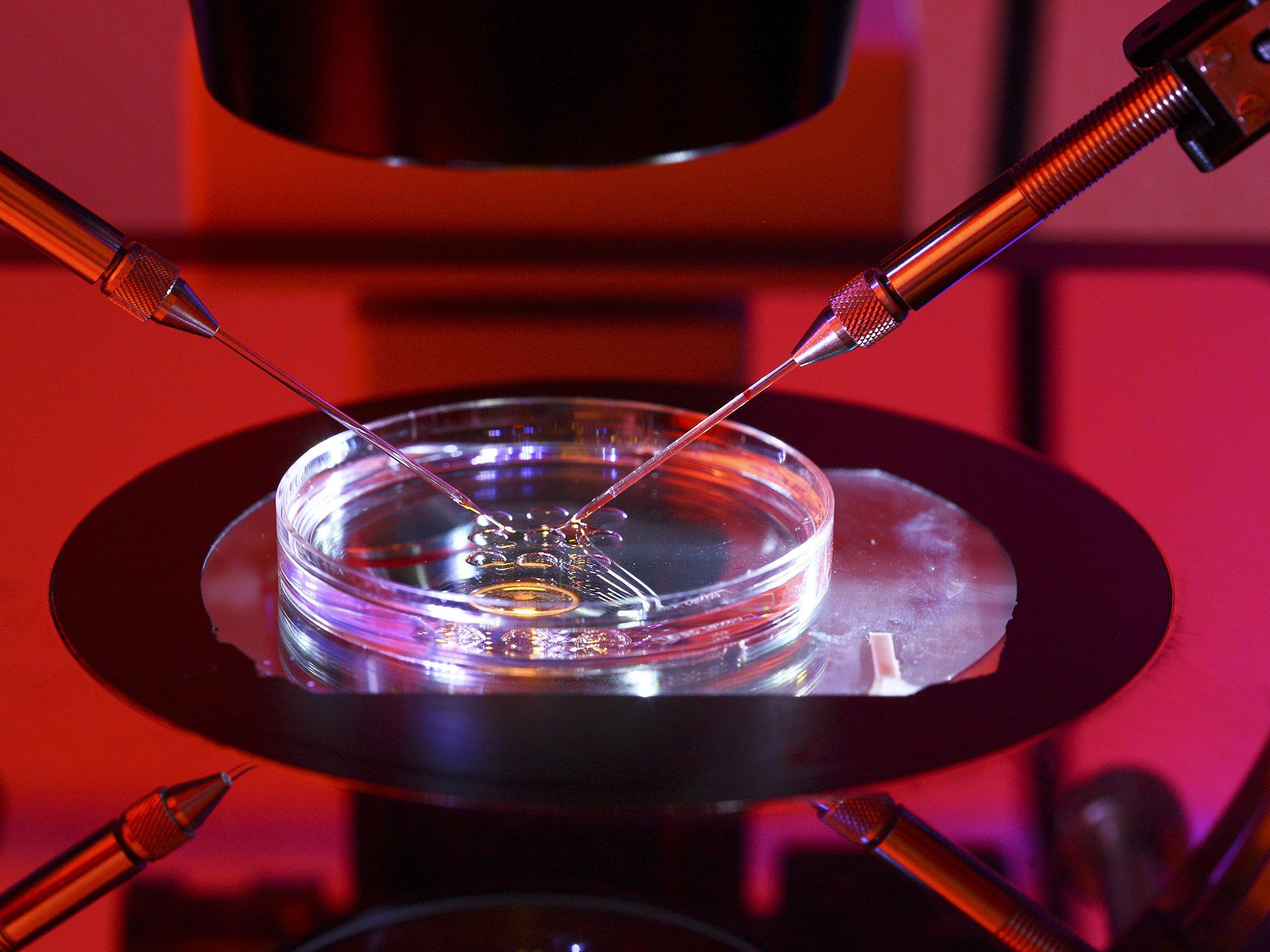Gene editing techniques not ready to create genetically-modified babies, experts warn
Joint committee of scientists says use of genetic engineering should currently be limited to research purposes only

Genetic engineering of human eggs, sperm or embryos should be allowed for research purposes only and not for the creation of genetically-modified babies “unless and until” ethical and safety issues are resolved, according to a joint statement from an international summit in gene editing.
Following three days of debate in Washington, a joint committee of scientists drawn from the national academics of the United States, Britain and China agreed that the new methods of gene editing offer immense clinical benefits, but that “germ-line” gene editing on human eggs, sperm and embryos is not yet ready for clinical use.
“It would be irresponsible to proceed with any clinical use of germ-line editing unless and until the relevant safety and efficacy issues have been resolved,” said Professor David Baltimore, the chair of the gene editing committee.
Germ-line gene editing could in principle be used to make genetic alterations on IVF embryos that could be passed down the generations from parents to children. It could be used to avoid inherited diseases or to “enhance” human capabilities, says the statement.
However, it also raises the risk of creating errors in the genetic code that would be inherited and difficult to remove, or creating enhancements to subgroups within the population that would exacerbate social inequalities, the statements says.
Nevertheless, there may come a time when safety and ethical considerations will permit the technology to be used on human germ cells – eggs, sperm and embryos – and this possibility must be reviewed on a regular basis, the academies have concluded.
“As scientific knowledge advances and societal views evolve, the clinical use of germ-line editing should be revisited on a regular basis,” the statement says.
“The international community should strive to establish norms concerning acceptable uses of human germ-line editing and to harmonize regulations, in order to discourage unacceptable activities while advancing human health and welfare,” it says.
Gene editing on non-reproductive cells offer many clinical benefits but still raises issues that need to be addressed, the scientists said. “There is a need to understand the risks, such as inaccurate editing, and the potential benefits of each proposed genetic modification,” their statement says.
Join our commenting forum
Join thought-provoking conversations, follow other Independent readers and see their replies
0Comments